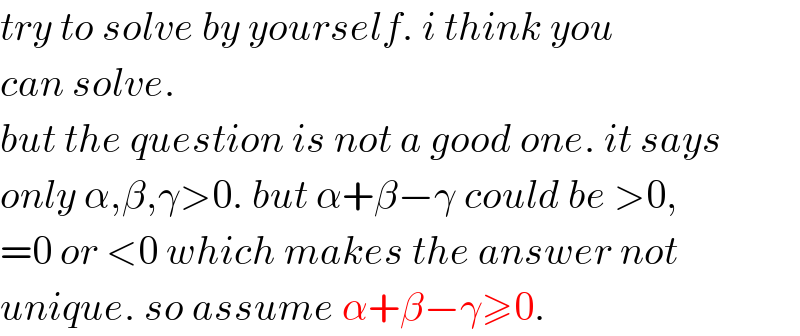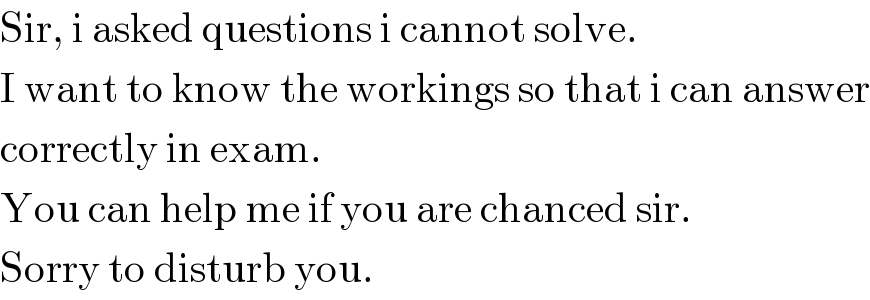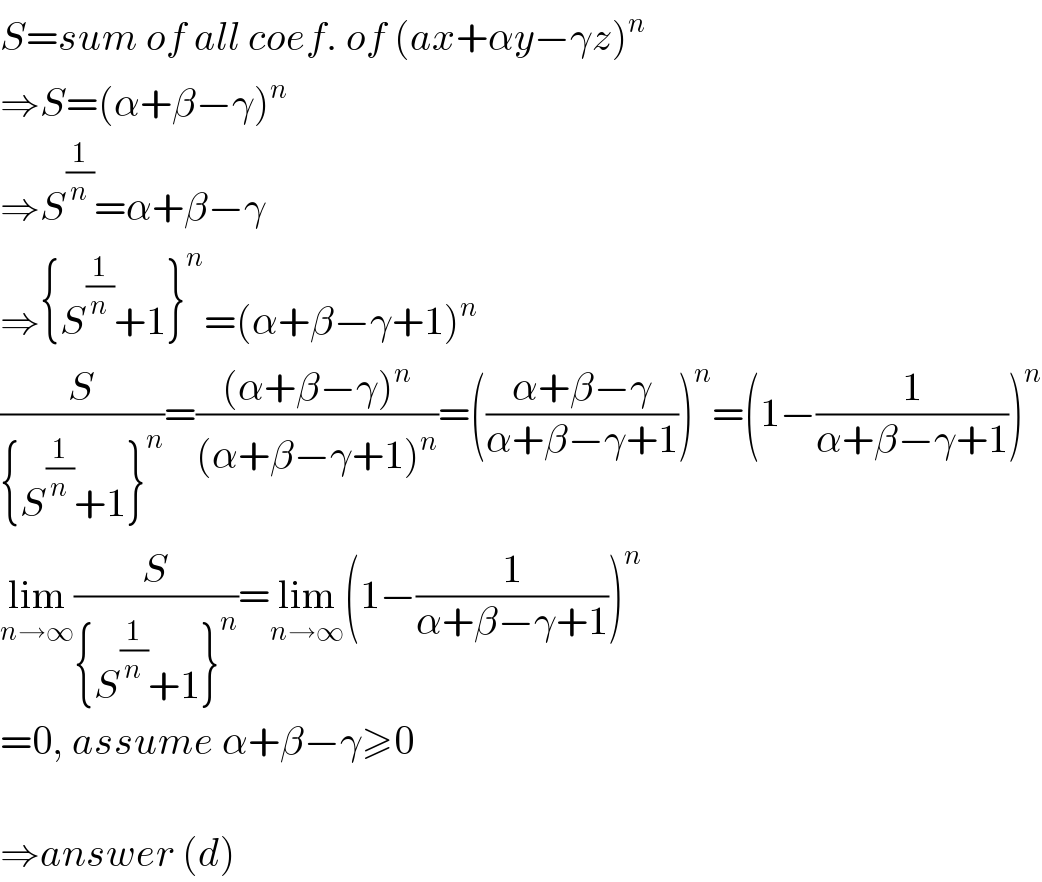
Question and Answers Forum
Question Number 77902 by TawaTawa last updated on 12/Jan/20

Commented by mr W last updated on 12/Jan/20

Commented by TawaTawa last updated on 12/Jan/20

Commented by mr W last updated on 12/Jan/20

Commented by mr W last updated on 12/Jan/20

Commented by TawaTawa last updated on 12/Jan/20

Commented by TawaTawa last updated on 12/Jan/20

Commented by mr W last updated on 12/Jan/20

Commented by TawaTawa last updated on 12/Jan/20

